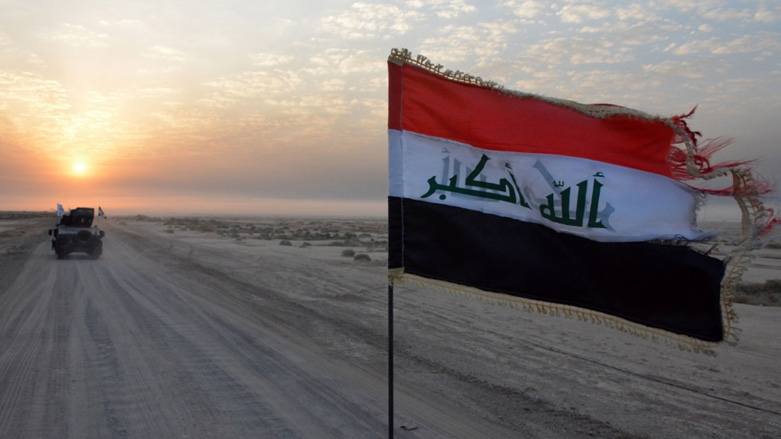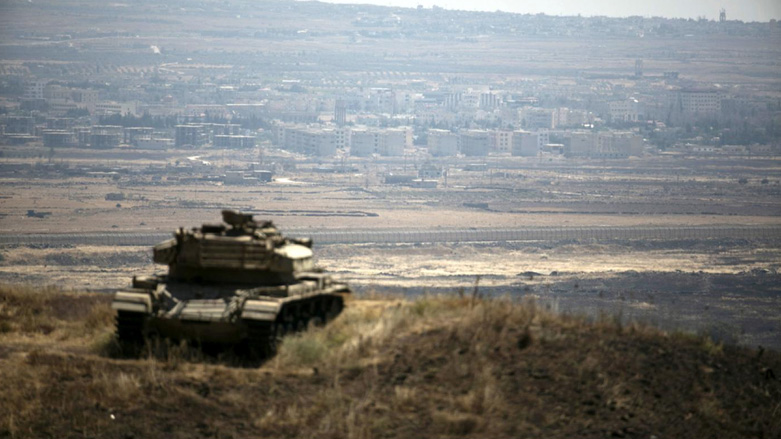Iraq rejects Israeli sovereignty on Golan Heights, as Prime Minister visits Egypt

WASHINGTON DC (Kurdistan 24) – Iraq’s Foreign Ministry responded on Saturday to US President Donald Trump’s tweet two days earlier, in which he called for recognition of Israeli sovereignty over the Golan Heights.
“Iraq strongly opposes the legitimization of the occupation of the Syrian Golan,” the Foreign Ministry said in a statement, calling Israel’s control of the area “a crime against the security of humanity.”
The Iraqi statement also affirmed that the “occupying power” has no “right or sovereignty” over “the occupied Palestinian territories, in particular the city of Jerusalem.”
The Trump administration moved the US embassy from Tel Aviv to Jerusalem last May, formally acknowledging Jerusalem as Israel’s capital.
The New York Times and CNN both reported that most of the Arab world met Trump’s announcement about the Golan Heights with a “shrug.” The Syrian civil war and the regime’s atrocities against its own population have left it “so weak and ostracized that few care what it wants,” the Times said.
Iraq thus joins Syria, Iran, and Turkey among the few Middle Eastern countries that have strongly protested Trump’s statement. Notably, the Iraqi Foreign Ministry’s statement avoided using the word “Israel” to identify the Jewish state, an echo of its practice under Saddam Hussein.
In addition, Iraqi Prime Minister Adil Abdul Mahdi traveled to Cairo on Saturday in his first trip outside the country. On Sunday, Jordan’s King Abdullah will join the Egyptian and Iraqi leaders in Cairo.
In addition, the Foreign Ministers and intelligence chiefs of all three countries held their own discussions in Cairo. Jordan has not suffered much from Islamic State attacks, although Egypt has faced a serious terrorism problem in the Sinai that has killed hundreds of security personnel, as well as dozens of tourists.
The US has been promoting a Middle East Strategic Alliance to include Egypt, Jordan, Saudi Arabia, and the five other Gulf Cooperation Council states, as a counter to Iran, and it wants to anchor Iraq among them.
Thus, Abdul Mahdi’s visit to Cairo fits into that US approach. However, Baghdad is balancing between conflicting alliances.
Last week, the Chief of Staff of Iraq’s Defense Ministry, Lt. Gen. Osman al-Ghanmi, visited Syria, where he conferred with his Syrian and Iranian counterparts in their first public meeting in Damascus. The three senior military officers agreed to further develop their intelligence coordination center, which also includes Russia, as the Iraqi media reported.
While in Syria, Ghanmi announced that Iraq would re-open the al-Qaim border crossing with Syria, which Baghdad had earlier closed to block terrorist infiltration. The move will facilitate trade between Iraq and Syria and benefit their war-torn economies. However, as the Wall Street Journal reported, US officials are concerned it will also facilitate the shipment of Iranian arms and other materiel to Tehran’s allies in Syria and Lebanon.

